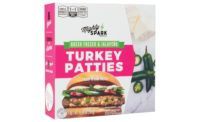The 2018 SQF International Conference was held October 23-25 at the Atlanta Marriott Marquis. The event brought together food safety officials to network, learn from SQF stakeholders and gain insights to improve their own food safety and quality assurance programs. As a part of that conference,
SQFI and Alchemy Systems hosted a Food Safety Field Trip, inviting members of the media to visit two Atlanta SQF-certified companies.
The Common Market is a non-profit distributor that works with local farmers from within a 250-mile radius. Working with food products that include fresh fruits and vegetables, dairy, eggs and meat, the company’s goal is to increase farm viability while providing markets, particularly the institutional market, with fresh, local, organic food.
The Georgia chapter of the company is about three years old. The company was originally started in Philadelphia, and that original location started around 2008. The latest branch, in Houston, opened in April, 2018. Both Philadelphia and Atlanta are SQF certified, and Houston will begin the process when it moves into a permanent facility.
“We are the only local food hubs in the country to have SQF certification,” said Lily Rolader, director of The Common Market Atlanta. “The reason we explored the SQF certification is that we want to play a role in legitimizing the local food space and making our customers feel comfortable to local food is safe; it’s not any less safe than any traditional food.”
The common market works with about 45 farmers. It distributes some products to foodservice and has a limited direct-to-consumer program, but its main goal is to help the institutional market. In particular, hospitals have a need for healthy produce. As the company works with regional producers, there is a seasonality element to their offerings. Fortunately, Georgia has a longer growing season than elsewhere in the country, so it is able to offer things like carrots, cabbage and collards throughout most of the year. Other items like hydroponic lettuce and sweet potatoes are year-round.
“We’ve recently started selling grass-fed ground beef, pasture-raised chicken, and we’ve also become a distributor for whole hogs,” Rolader says. “For all of the meats that we sell, we require no antibiotics and no hormones. For our farmers that are claiming it is pasture raised, we have to see what that looks like, in terms of how often are they in the pasture, how much are they exposed to the outdoors.”
Buckhead Beef, also in Atlanta, is a larger and more specialized operation. The company, founded in 1983 and a subsidiary of Sysco, specializes in Cutting boxed beef into high-end steaks for the white-tablecloth sector. Along with portion-cut steaks, it also does portion-cut seafood and is involved in dry-aging as well.
“Dry age is not just about tenderness, it’s about flavor, and each facility that does dry aging has a unique flavor that goes along with tenderness,” explains Norlyn C. Tipton Ph.D., FSQA Director, Specialty Meat & Seafood Companies.
Buckhead, like most of the Sysco meat facilities, is SQF certified. The few that aren’t currently certified will become so when they are moved into new facilities. The SQF certification isn’t the only thing that keeps the company as a leading center-of-the-plate specialist in the United States. It’s culture of food safety that permeates the company, from the top of the management down to the new line worker.
Tipton says that the old school that used to exist in some meat plants is gone and has been replaced permanently by the new school.
“The old school was the point-in-time audit. You would do whatever you want, throughout the year, and the next month up to when your audit was going to occur, everyone would scramble to pretty up the place,” he explains.
All of Sysco’s facilities now incorporate food safety into their daily activities, to the point that each facility considers food safety to be Priority Number One, and getting food shipped out is Priority Number Two. Both are vital to a company’s long-term existence, but shipping out product that’s unsafe just to fill an order is an unnecessary risk.
“Your customers expect their food to be safe. Food quality is something that they expect too, but not as much as food safety. Food quality is something that will drive your market share even higher. Food safety is something that will kill you overnight,” Tipton points out.





